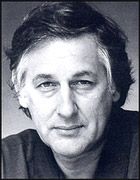
ALP true believer, playwright, screenwriter, some-time political staffer and long-time author Bob Ellis is a much-loved figure on Australia’s literary landscape. Jo Case spoke to him about his latest book
, And So It Went,
for Readings
.
In And So It Went
It’s accurate. Like most writers and many, many politicians I live in fear and dread of the day that I am ‘found out’.
You’ve been critiquing the Howard government in print for some years. At one stage in the book, you jest that ‘it seemed my purpose in life was ended with Howard’s fall’. Although as a human being you must be delighted with his demise, as a writer, does a part of you miss him?
He gave my seventh decade a focused purpose, but he shrivelled my talent, hobbled my career and gave me a weary depression (which Julian Burnside calls ‘Howard fatigue’) that shrank my artistic confidence and self-esteem. I don’t want him back, nor does anyone. Suggest to any Liberal he should be found a safe seat and a Shadow Cabinet position (his former job of Industrial Relations for instance) and see how quickly they kick you down the stairs.
One of the things I like most about your books is the way they humanise public figures (especially politicians) by showing them as they are behind the scenes. Your good friend Mike Rann, SA Premier, and sometime employer, former NSW Premier Bob Carr, are two characters who I especially enjoying reading your accounts of, for this reason. Does your candour ever get you into trouble with these figures – friends included? Do you think they learn to watch they say around you, knowing chance comments may work their way into posterity?
No, but they do say with emphasis, ‘Print this, Ellis, and you’re dead meat,’ an injunction I (mostly) heed. Many, many politicians are warm and decent beings, and the media view of them as chittering gremlins is tremendously unfair and unjust. None of them is as wicked as O’Reilly, Hannity, Akerman, Beck or Jones and I hope my books remain as evidence down the centuries of politicians’ contrasting decency.
You say that you “should be more grateful than I am” for Rudd’s leadership – at times you make some funny but devastating observations about the man who once called you ‘Uncle Bob’. (“The mountain has laboured … and brought forth a clerk.”) It seems that you have mixed feeling about him. Is this accurate?
Very mixed. He is a superb, disarming television presence, a tyrannical office manager, a changeable policy wonk, and a dark miracle of sleeplessness and hectoring. History will be less kind to him than Robert Manne, but he towers over the crab-louse he displaced, and his Ministers and Secretaries are collossi compared with their fidgetty, midget predecessors.
You write that you didn’t want Turnbull to win the Liberal leadership because “he’d be too effective”. What do you think of him now?
I think he’s blown it. He tells daily too many contradictory lies and the voters are noticing.
Your record of the past couple of years in politics – the lead-ups to the Australian and US elections, the early days of the Rudd government – is tempered with reflections and observations on the other ingredients of life: family, friends, work, cultural life. What do you think your books achieve by blending the progress of politics with the march of everyday life? What first gave you the idea for this series of books?
In 1983 my wife miscarried on the day Hawke replaced Hayden and Fraser was not allowed, for five hours, to call an election. I was propelled by anguish and suspense into writing all this down, and in fifty days The Things We Did Last Summer was in the bookshops. Enough praise from it followed to prove the combination of public and private useful. Later reading Vidal’s Palimpsest and Alan Bennett’s yearly Diaries confirmed me in this view and I did Goodbye Jerusalem with the eye of a novelist. Oswald’s Tale by Mailer and In Cold Blood by Capote showed, too, that fact displayed as if it was fiction drew in the reader as no dry arm’s-length history could. All good books have a speaking voice and those that don’t soon founder.
Of the global financial crisis, you say: “It’s as big a shift in the way we think as the Berlin Wall. Like that huge event, it showed the rules we lived by till then were wrong, because so many people wanted to escape those rules.” What do you think the lasting effects of the crisis will be? Do you think there will be any positive effects? Do you think it will change the way politics is practiced at all?
The lasting effects will be the end of the notion of the greedy-wizard CEO and of jackal capitalism as we know it. What will follow is uncertain but my money is on Social Democracy, Scandinavian-style, with fifty percent taxes, an interfering bureaucracy and security, cradle-to-grave, for all.
It’s clear from reading the book that you are a voracious reader. What books have you read and enjoyed lately? Any that particularly surprised, delighted or outraged you?
Dreams From My Father, all of Evelyn Waugh, many, many books about the Iraq fiasco and the television series Rome and Mad Men, and the films Hunger, and Enron: The Smartest Guys in the Room. All of these test the intellect while delighting the language-sensitive ear. I try to read two books a week and a hundred book reviews and believe this delays Alzheimer’s.


